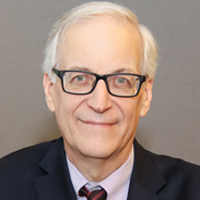
FCC Nixes Another Deal With Deafening Silence


Harry Jessell
As we learned from the FCC’s sabotage of the Standard-General-Tegna takeover, FCC Chairwoman Jessica Rosenworcel hates big broadcast TV deals.
We now learn she hates little ones, too.
Eighteen months ago, Forum Communications asked the FCC to OK its $24-million purchase of Fox affiliates KVRR Fargo, S.D., and KQDS Duluth, Minn., from Red River Broadcasting.
The deal posed a problem as Forum already owned Fargo’s ABC affiliate, WDAY, and FCC rules prohibit ownership of two top stations (two Big Four affiliates generally speaking) in the same market.
However, the rules also say the FCC will consider such duopolies if the buyer makes a showing that the combo will not unduly damage competition and that it will otherwise serve the “public interest.”
That’s what Forum did, and then it waited and waited and waited for the FCC to grant the waiver and approve the sale or explain why not.
The agency did neither. It just quietly let the parties know that it wasn’t going to act. When the sales contract expired in May, the seller, Red River, had enough. It threw up its hands and walked away.
“The request for a waiver, whether granted or denied, was just not heard, which is the part that really astonishes us,” disappointed Forum VP Joshua Rohrer told me. “Why that is? Your guess is as good as mine.”
It was a bureaucratic trick similar to the one the FCC used in Standard General-Tegna where it stretched out the approval process so long that Standard General’s elaborate financing package unraveled, and it was unable to close.
I see the appeal of the do-nothing, run-out-the-clock method to Rosenworcel. It doesn’t require any staff work or commission vote and it effectively cuts off avenues of appeal.
It also discourages others from applying for waivers, which I suppose is Rosenworcel’s real intent. Even a formal denial would have given some guidance to other buyers and sellers who might want to take a shot at getting a duopoly waiver.
The only guidance here is: Forget about it.
By the way, there was no public opposition to the Fargo deal — no petitions to deny or even informal objections. Of course, the FCC is a political body and so susceptible to political pressure. You never know if someone was sneaking around trying to scuttle the deal.
I asked the FCC for an explanation, and it declined to comment.
This is a good example of bad government. The FCC, albeit during a Republican administration, promised to consider Top-Four waivers, even going so far as to spell out the criteria for winning an approval.
But when a request with each of the criteria carefully addressed comes before it, the agency can’t be bothered with making a proper ruling. The time and expense the parties put into the deal counts for nothing.
This is also another good example of how the Rosenworcel FCC is willing to disrupt the normal course of business for abstract, outdated and questionable notions of diversity of “voices” (owners), competition and localism.
What is especially troubling about the FCC’s mindless adherence to the big-is-bad Democratic orthodoxy is that it has undermined precisely the kind of broadcaster it should be supporting in every which way it can.
Forum Communications is not some Wall Street investment firm like Standard General that is easy to vilify just because it is a Wall Street investment firm.
It is a family-owned company that traces its roots back nearly 150 years and five generations to the founding of The Forum of Fargo-Moorhead newspaper in 1878.
It now comprises several digital and print newspapers throughout the Dakotas and Minneapolis as well as WDAY and the ABC affiliates in the North Dakota communities of Grand Forks, Bismarck and Minot.
And the company is based in Fargo. Back in the day, when the FCC had to pick and choose among competing applicants for licenses, the first thing it looked for was “integration” of local ownership and local management.
The thinking was that if the owners live in the community, they are more likely to operate in the best interest of the community — the people who they are apt to see around town everyday — than some outsider. It makes perfect sense.
How that principle no longer matters at the FCC is baffling.
I can see why the FCC may be wary of granting Top-Four combos because of what happened in Sioux Fall, S.D., just 250 due south of Fargo.
In 2019, in its first and, I believe, only waiver of the rule, the FCC approved Gray Television’s $32.5 million purchase of NBC affiliate KDLT, even though it already owned the market’s ABC affiliate, KSFY. Gray subsequently acquired the Fox affiliation and airs it on a subchannel of KDLT. So, Gray ends up with three of the Big Four in the market.
But Forum isn’t Gray.
Unlike Gray in Sioux Falls, Rohrer said, Forum would have operated its two stations in Fargo independently — that is, with separate brands, news directors, reporters and anchors. “We made a commitment to actually increase the amount of news coming off KVRR over what they are doing today.”
Forum faces tough competition in Fargo. As it happens, Gray operates Fargo’s NBC and CBS affiliates. (The CBS outlet is a low-power station and so isn’t subject to the two-Top-Four ban.)
And, according to our just published Top 30 Station Groups, Gray is the fourth largest group in the nation with annual revenue of $3 billion. You would think the FCC might want to even things up in the market.
In its filing, Forum also argues that its ownership of the Fox outlet would make the market more competitive and local programming more innovative.
It would also result in an increase in local advertising spots in the market as Forum would replace much of the paid advertising and nationally syndicated programming on KRVV with local news. And more spots mean lower ad rates for local advertisers.
As a side note, it is hard to understand why the FCC would strictly enforce the Top-Four rule when it has been easily circumvented with the use of low-power stations and subchannels as Gray has demonstrated in Fargo and Sioux Falls. These dodges have been successfully employed in dozens of markets by others.
So, the Rosenworcel FCC, again in high-handed fashion, has decided what’s best for the good folks of Fargo based on an arbitrary rule that might make some sense in general, but certainly doesn’t in this particular case in Fargo.
In this case, the FCC should have sacrificed a weak third voice in the market to ensure vigorous competition between the two strong remaining voices, one with the resources of a multi-billion-dollar corporation, the other with local goodwill accumulated over a century and a half.
KRVV and KQDS are back on the market (see Kalil & Co.). My guess is that they will eventually go to a station consolidator or speculator with owners far from Fargo and Duluth.
When the FCC routinely approves that deal, perhaps we will get an explanation of why the out-of-market, out-of-touch buyer is superior to Forum. But I wouldn’t count on it.
Harry A. Jessell is editor at large of TVNewsCheck. He can be contacted here. You can read earlier columns here.
































Comments (2)
Michael N. Ruggiero says:
July 6, 2023 at 8:55 am
Harry, the FCC has been weaponized by the Biden Administration. For months we watched Rosenworcel play hide and go seek while her puppet strings are pulled by Democrats that have no care for the rules.
You know something is wrong when diversity is needed yet Mr. Soo Kim a Korean American was treated unfairly. Why even have an FCC if they cannot perform their job?
Sincerely,
Mike Ruggiero
Founder & Chairman ATV Broadcast
Hopeyoumakeit says:
July 28, 2023 at 12:39 pm
The FCC’s number 1 problem is no diversity in ownership. White women standing in for white men to circumvent diversity requirements does not pass the smell test. A board room full of white people is not diverse.
I have seen cash flow multiples bidded up to the point where no Black America can get financing. Ask Dave Lougee. He paid multiples no outsider could touch because his hand picked board would never question his decisions. He still does not know how to leverage his 85% coverage in Texas (even that sounds illegal)